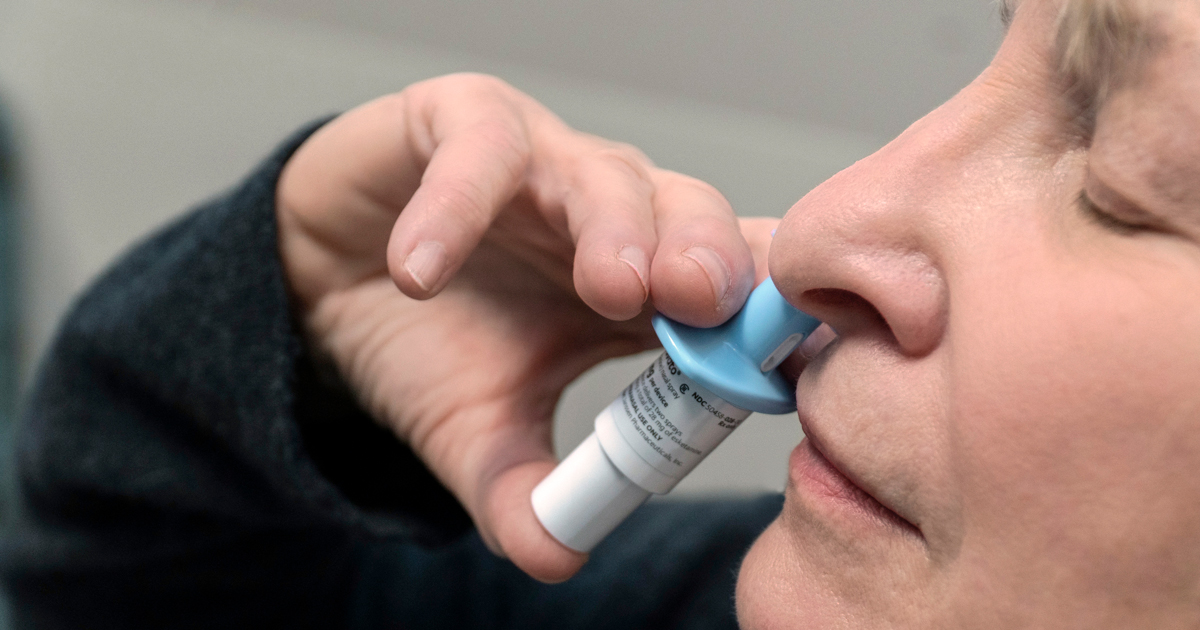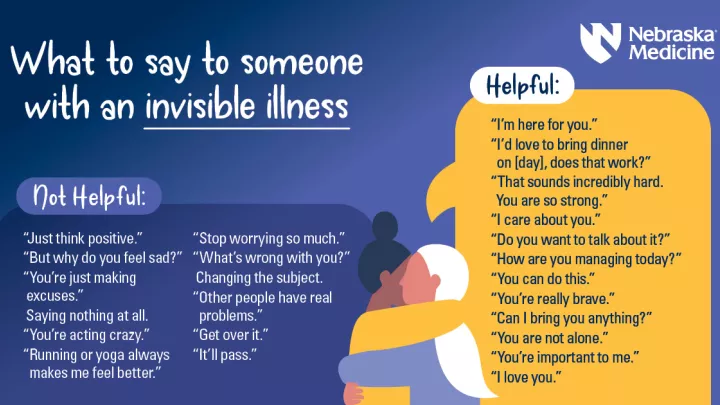What is esketamine, and is it effective in treating depression?

If you're still experiencing depression after trying conventional antidepressants, it may be time to try something new. Approved by the U.S. Food and Drug Administration, esketamine nasal spray works in conjunction with oral antidepressants to treat depressive symptoms in adults with either treatment-resistant depression or major depressive disorder with suicidal ideation or behavior. Put simply, it provides relief for depression by helping antidepressants work more effectively.
"I've been running the esketamine clinic for two years, and patients love it. It has given many of them a chance to experience life without depression for the first time in decades," says Stephen Salzbrenner, MD, a board-certified psychiatrist who founded the ketamine therapy program at Nebraska Medical Center.
What is esketamine?
Esketamine is made from a drug called ketamine, an anesthetic used for many years. But it wasn't until recently that esketamine, a component of ketamine, earned FDA approval for use as a nasal spray for treatment-resistant depression.
How does esketamine treat depression?
Esketamine's antidepressant function doesn't work like other antidepressant medications. Conventional antidepressants increase naturally occurring chemicals like serotonin and dopamine. These chemicals are messengers that relay communication between brain cells and impact mood. The theory is that more neurotransmitter activity leads to better mood. Similarly, esketamine increases glutamate, the most abundant chemical messenger in the brain, which is thought to treat depression in a way that is unique from other antidepressants on the market.
What are the side effects of esketamine?
People can experience a variety of side effects from esketamine. The most dramatic side effect is temporary dissociation, which is a feeling of being disconnected from yourself or reality. Other side effects may include:
- Nausea
- Drowsiness
- Increased blood pressure
- Headache
Side effects usually peak around 40 minutes and wear off within two hours of treatment. You can expect the most intense side effects during the first two treatments, but symptoms often reduce after that.
Where can I find esketamine?
Esketamine nasal spray can only be used in a clinic or hospital setting. This means you cannot purchase it at a pharmacy or drugstore like most medications. Under medical supervision, you'll give yourself three doses nasally, spaced five minutes apart. You'll remain in the clinic under medical observation for two hours. You'll need to have a friend or family member drive you home, and you won't be able to drive the rest of the day due to possible side effects.
The starting dose is 56 milligrams on day one, then 56 to 84 mg twice a week for the first month. After that, most patients taper to once per week for the next several months and then some can eventually drop to once every other week.
"Most patients will likely have to take it forever, but we try to get them down to the lowest necessary dosage and frequency to make it easier to continue treatment" says Dr. Salzbrenner.
Who is a good candidate for esketamine therapy?
Currently, esketamine is approved for two conditions. The first is adults with treatment-resistant depression, defined as those who have tried at least two other antidepressants without significant improvement. The second is depressive symptoms in adults with major depressive disorder with suicidal ideation or behavior.
What can I do if I'm struggling with depression?
There are several steps you can take to manage depression on your own:
- Exercise – Regular exercise may help ease depression and anxiety by releasing feel-good endorphins and other natural brain chemicals that can enhance your well-being.
- Eat a healthy diet – Chronic and excessive inflammation harms the body, including the brain. Eating a healthy, balanced diet can help decrease inflammation, preventing depression.
- Get outside – Spending time in nature and sunlight has been found to help ease depression. Getting outside for just a few minutes each day can help relieve your symptoms.
- Add bright light – For those without access to natural sunlight, light therapy boxes offer similar benefits to fight the winter blues. Ask your doctor for help finding one that's right for you.
- Find a psychiatrist – Psychiatry staff are specially trained to provide diagnostic evaluations and treatment for a wide array of mental health problems. Our compassionate clinicians use proven treatment strategies to help you work through your problems and get back to enjoying life.
"Depression can affect your quality of life and personal relationships, but there are many great treatments out there, so don't give up," says Dr. Salzbrenner. "Finding a good psychiatrist or therapist is key to helping you learn how to manage your symptoms."
If your current treatment isn't working for your depression, talk to your psychiatrist to see if esketamine therapy is right for you. For more information or to schedule an appointment, call 402.552.6007.







